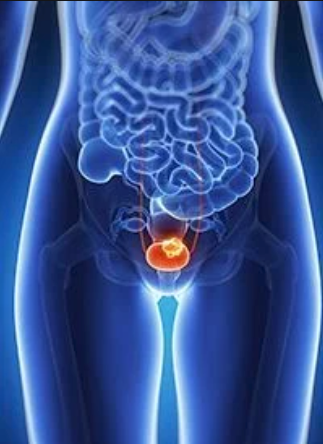Atezolizumab Demonstrates Clinical Activity in PD-L1–High Metastatic Urothelial Carcinoma
February 12, 2021 - Atezolizumab monotherapy showed favorable outcomes compared with chemotherapy alone as frontline treatment for patients with cisplatin-ineligible IC2/3 advanced or metastatic urothelial carcinoma.

Atezolizumab (Tecentriq) monotherapy showed favorable outcomes compared with chemotherapy alone as frontline treatment for patients with cisplatin-ineligible IC2/3 advanced or metastatic urothelial carcinoma (mUC), according to findings from an exploratory analysis of the phase 3 IMvigor 130 trial (NCT02807636) that were presented at the 2021 American Society of Clinical Oncology (ASCO) Genitourinary Cancers Symposium.1
In the primary analysis of IMvigor 130 trial, interim overall survival (OS) data for atezolizumab monotherapy could not be formally tested but favorable efficacy was seen in patients with IC2/3 mUC at a median of 15.7 months (95% CI, 13.1-17.8).2 Moreover, this benefit was initially seen in patients with mUC regardless of cisplatin eligibility and PD-L1 score in both OS (HR, 1.02; 95% CI, 0.83-1.24) and objective response rates (ORRs), with a median 23% ORR (95% CI, 19-28) in the atezolizumab monotherapy arm and 43% (95% CI, 38-49) in the placebo and chemotherapy arm.
The exploratory analysis, presented at the ASCO symposium, compared cisplatin-ineligible patients randomized 1:1:1 to atezolizumab plus platinum/gemcitabine chemotherapy (Arm A), to atezolizumab monotherapy (Arm B), and platinum/gemcitabine chemotherapy alone (Arm C) on their outcomes based on PD-L1 status. The study protocol was altered to only allow administration of atezolizumab to cisplatin-ineligible patients whose tumors had a high PD-L1 score, instead ofthe full study population, according to Matthew D. Galsky, MD, professor of medicine and acting chief of the Division of Hematology and Medical Oncology at the Mount Sinai Icahn School of Medicine, explained in the presentation of these data.
Interim OS taking account for PD-L1 status, but not cisplatin eligibility, showed a lesser benefit of chemotherapy alone compared to atezolizumab monotherapy among IC2/3 patients with mUC and a high PD-L1 score with 33 OS events in Arm B and 42 events in Arm C (HR, .68; 95% CI 0.43-1.08). However, this was not statistically significant with ORR rates of 39% (28, 50 95% CI) and 44% (33, 55 95% CI) respectively.
When taking into account cisplatin-ineligible patients with mUC, patients classified at IC2/3 saw a better OS benefit in Arm B compared to Arm C (HR .53; 95% CI, .30-.94) while patients classified at IC0/1 did not (HR 1.11; 95% CI, 82- 1.51). The ORR for patients in the monotherapy Arm B was 38% (25, 53 95% CI) compared to 33% in Arm C (19, 49 95% CI). There were 21 OS events among the 50 patients on Arm B in comparison to 26 OS events among the 43 patients in Arm C.1
Coupled with these efficacy data, researchers looked at the safety of atezolizumab monotherapy in comparison to these two methods of therapy. In the initial phase 3 findings, 156 patients (34%) withdraw from Arm A due to adverse events (AE) in comparison to 132 patients (34%) in Arm C and 22 patients (6%) in Arm B.2 This favorable safety profile was deemed encouraging, and in the exploratory analysis, AEs were found consistent with the overall safety population initially assessed. In Arm B, all grades of treatment-related AEs (TRAEs) occurred in 60% of patients in comparison to 96% of patients in Arm C. Moreover, grade 3-4 TRAEs occurred in 15% of patients on arm B compared to 81% of patients in arm B. This was an improved safety rate from the initial analysis.
Furthermore, Grade 5 TRAEs occurred in 3 patients in Arm B and 4 patients in Arm C.1 According to the researchers, these data demonstrate that atezolizumab is beneficial in patients with mUC as many are ineligible for cisplatin treatment. These data also demonstrate that looking at PD-L1 score could provide further benefit and target the patients who most need this treatment.
Patients in this trial received either 21-day cycles of gemcitabine (1000 mg/m2) administered intravenously on days 1 and 8 of each cycle, plus carboplatin (4.5 mg/mL per min) or cisplatin (70 mg/m2) on day 1 of each cycle with either atezolizumab (1200 mg) in arm A or placebo in Arm C. Arm B patients received 1200 mg of atezolizumab, administered intravenously on day 1 of each 21-day cycle. Cisplatin eligibility and PD-L1 status was factored in throughout the trial in the atezolizumab monotherapy arm. As of now, follow-up OS study is being conducted.
References
1. Galsky MD, Arija JÁA, Bamias A., et al. Atezolizumab (atezo) monotherapy versus chemotherapy in previously untreated locally advanced or metastatic urothelial carcinoma (mUC): Clinical outcomes by PD-L1 status in cisplatin (cis)-ineligible pts from the phase III IMvigor130 study. Presented at: 2021 ASCO Genitourinary Cancers Symposium; February 11-14, 2021; Virtual. Abstract 434. Accessed February 12, 2021. https://bit.ly/3jK58qn
2. Galsky MD, Arija JÁA, Bamias A, et al. IMvigor130 study group. Atezolizumab with or without chemotherapy in metastatic urothelial cancer (IMvigor130): a multicentre, randomised, placebo-controlled phase 3 trial. Lancet. 2020;395(10236):1547-155. doi: 10.1016/S0140-6736(20)30230-0



